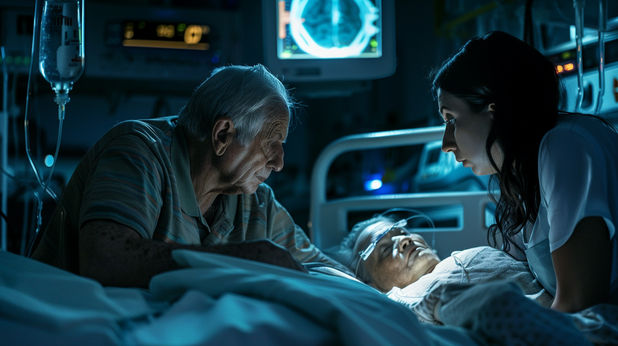Attorney Robert Painter filed a wrongful death medical malpractice lawsuit against Memorial Hermann Southeast Hospital, and an anesthesiologist and certified registered nurse anesthetist (CRNA) who work at the hospital, concerning the needless death of 45-year-old Michelle Hunt. The case is pending in the 127th District Court of Harris County, Texas, where Judge R.K. Sandhill presides.
In April 2014, Michelle walked into Memorial Hermann Southeast Hospital, for what she expected would be a short, in-and-out evaluation.
Michelle had decided to get a lap-band procedure so she could reduce her weight. She was otherwise healthy.
On a day before her scheduled lap-band surgery, her bariatric surgeon recommended that she have a short outpatient EGD test to see if she had a hiatal hernia. If so, any hernia could be repaired at the same time as the lap-band procedure. An EGD is an elective test that usually lasts a couple of minutes, when a doctor places a fiberoptic camera through the throat to examine the gastrointestinal tract.
Instead, something terribly wrong happened—and according to our expert witness, it started and ended with the anesthesia team.
For the short EGD procedure, Michelle was placed under general anesthesia in the operating room. The anesthesiologist assigned to Michelle’s case was working in conjunction with a certified registered nurse anesthetist (CRNA).
The anesthesiologist and CRNA decided to use an anesthetic drug called Propofol. This is the same dangerous drug that led to the deaths of Michael Jackson and Joan Rivers. Many anesthesia providers consider Propofol an effective and desirable anesthetic drug, because it is fast acting and wears off quickly. When there are no complications, Propofol is great, they say.
But when there are complications, the results can be deadly, particularly when the anesthesiologist is not in the operating room when a problem arises. And that is exactly what happened to Michelle Hunt.
According to our expert anesthesiologist, the CRNA miscalculated the dosage of Propofol and fatally overdosed Michelle. You may be wondering, “Where was the anesthesiologist?” According to the medical records, she was not in the operating room when the CRNA gave Michelle the deadly overdose of Propofol.
Shortly after the CRNA gave Michelle the Propofol, Michelle stopped breathing. The CRNA then gave Michelle another anesthetic drug, succinylcholine, which paralyzed her—our expert anesthesiologist explains that this, too, was another overdose of a powerful anesthetic medication and effectively prevented Michelle from being able to have any breathing effort.
The CRNA asked for the anesthesiologist, who came to the operating room. A Code Blue resuscitation effort lasted for nearly an hour, but they were not able to bring Michelle back until the drug overdoses wore off, our expert witness has told us. But by then it was too late—Michelle had permanent, irreversible brain damage from a lack of oxygen. It was not long until she died at such a young and vibrant age.
This is not the first case that the Texas medical malpractice attorneys at Painter Law Firm attorneys have handled, where Propofol was involved in the death of young people because of medical malpractice. We are currently handling a medical malpractice case against Knapp Medical Center, in Edinburg, Texas, and its subcontracted anesthesia providers from Northstar Anesthesia, P.A., with very similar facts. In this case, which is pending in McAllen, Texas, a nurse anesthetist gave a man in his 30s Propofol, without an anesthesiologist in the room, he stopped breathing and they could not resuscitate him until after he had permanent brain damage from a lack of oxygen.
In fact, in our experience, we have seen these tragic deaths occur when a certified registered nurse anesthetist gives a patient Propofol, and something goes wrong while an anesthesiologist is not in the operating room.
Before a surgery, I recommend asking the anesthesiologist if he or she will be physically present in the operating room during the procedure. This is particularly important during the most dangerous stages of anesthesia, which are induction (when the anesthesia is started) and emergence (when they wake up the patient from anesthesia). Ask what role the anesthesiologist will have, as opposed to the roles of a certified registered nurse anesthetist or anesthesia assistant, both of whom have much less training that an anesthesiologist.
If you or someone you care for has been injured or killed as a result of Propofol or any other form of anesthesia of operating room medical malpractice, call the Texas medical malpractice attorneys at Painter Law Firm for a free consultation, at 281-580-8800.






